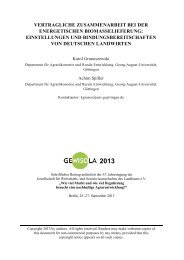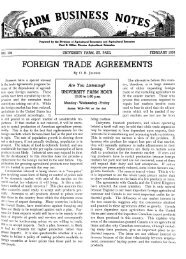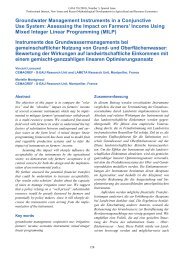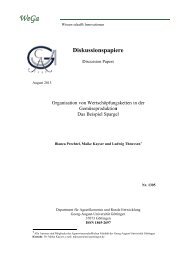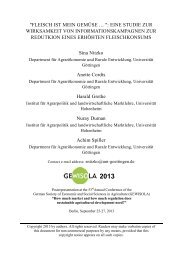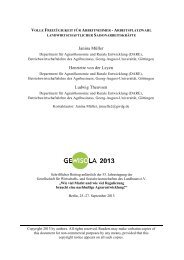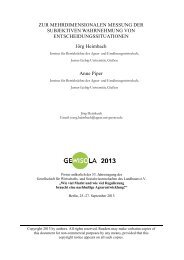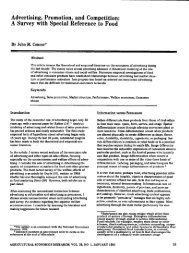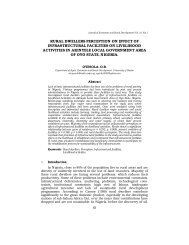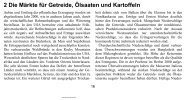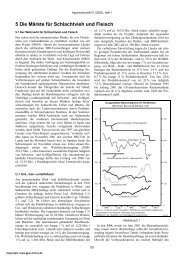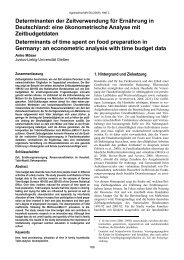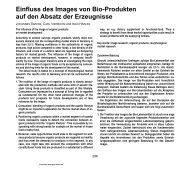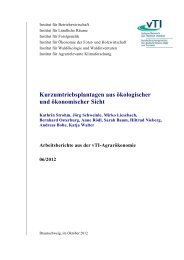District Institutes of Education and Training - Teacher Education
District Institutes of Education and Training - Teacher Education
District Institutes of Education and Training - Teacher Education
You also want an ePaper? Increase the reach of your titles
YUMPU automatically turns print PDFs into web optimized ePapers that Google loves.
<strong>District</strong> <strong>Institutes</strong> <strong>of</strong> <strong>Education</strong> <strong>and</strong> <strong>Training</strong>: A Comparative Study in Three Indian States<br />
children are to be taught. But the question is <strong>of</strong> feeling. Teaching should be<br />
done as service, as worship (MP/DHA/T093 9.7.99)<br />
A DIET lecturer in Dhar DIET summed up the key issue that he faced as a trainer;<br />
<strong>and</strong> his view reflects the view <strong>of</strong> DIET staff in all the sample DIETs:<br />
Many teachers come here for training but don’t use it in their classrooms. To<br />
improve them we do monitoring <strong>and</strong> keep on telling them. We don’t have any<br />
administrative power for that, the DIET’s work is only academic. We can only do<br />
it through love <strong>and</strong> not through power. The reason I feel is this is about education<br />
<strong>and</strong> I feel it could never be done through force. We can’t force someone that she has<br />
to teach, if she wants to, she will. If a person doesn’t want to teach whatever you<br />
tell him he will go to the class but do other work only. You have to give trainings<br />
<strong>and</strong> through that you have to create interest <strong>and</strong> that is the meaning <strong>of</strong> training. I<br />
underst<strong>and</strong> that it is my biggest aim to create interest (MP/DHA/TT06 10.5.99).<br />
The key to much <strong>of</strong> the lack <strong>of</strong> impact <strong>of</strong> DIET training lies in the second line <strong>of</strong><br />
this citation (italics added).<br />
5.6 The model <strong>of</strong> in-service teacher education<br />
The approach to teacher development described in this chapter falls within the<br />
‘skills- <strong>and</strong> knowledge-based’ paradigm, which Hargreaves <strong>and</strong> Fullan (1992: 2)<br />
identify as ‘the overwhelmingly dominant approach to planned teacher<br />
development activity in modern school systems’ (see also NCTE, 1998).<br />
Administrators tend to favour skills <strong>and</strong> knowledge approaches because they are<br />
‘clearly focused, easily organised <strong>and</strong> packaged, <strong>and</strong> relatively self-contained’ (ibid,<br />
p. 3). This approach also fits with a centralised approach to teacher development.<br />
These accounts have shown that the programmes tend to be rather weak on skills<br />
development, <strong>and</strong> stronger on knowledge development – although knowledge is<br />
restricted to content knowledge.<br />
Critics <strong>of</strong> programmes within this approach object to the assumption that it is<br />
appropriate to impose them on teachers on a top-down basis by external “experts”.<br />
This approach is liable to fail to involve teachers sufficiently to secure their<br />
commitment, particularly since ‘little value is placed on teachers’ own practical<br />
knowledge in the development <strong>of</strong> classroom skills’ (ibid, p. 3). McNiff (1991) argues<br />
that this approach treats teachers as nothing more than ‘technicians’, expecting them<br />
to implement the ideas <strong>of</strong> others rather than develop their ‘craft knowledge’.<br />
Comments from teachers also illustrate that teachers are dissatisfied with training<br />
that does not relate to their needs, experience or take local context into account.<br />
110 DFID



